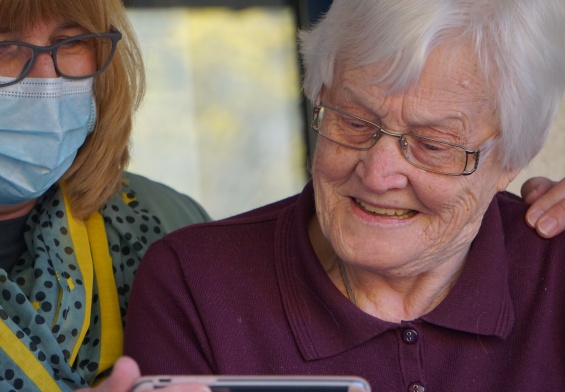The pursuit of a whiter, brighter smile is a common goal for many, transcending age and health conditions. It’s a pursuit that significantly impacts one’s self-confidence and how they interact with the world. For individuals receiving in-home care, including those in elder care, senior care, or managing conditions like dementia, the journey towards achieving a whiter smile presents unique challenges. However, it also offers unique opportunities for personalized care that respects their comfort and health needs. This exploration into achieving a whiter smile for in-home care recipients underscores the importance of accessible, safe dental care practices that can enhance one’s quality of life from the comfort of their own home.
The role of dental aesthetics in overall well-being cannot be overstated, especially for those who may not readily access traditional dental services. In-home care settings provide a unique platform to implement effective whitening practices, tailored to individual needs and circumstances. By focusing on daily oral hygiene, dietary adjustments, and the judicious use of over-the-counter whitening products, caregivers can play a pivotal role in helping those they care for achieve and maintain a brighter smile. Moreover, the availability of professional dental consultations and treatments within the home setting ensures that even the most vulnerable populations can enjoy the benefits of cosmetic dentistry, making the dream of a whiter smile a reachable goal for everyone.
Safe and Effective Whitening Practices at Home
- Daily Oral Hygiene: The foundation of a whiter smile lies in rigorous daily oral hygiene. Caregivers can assist in-home care recipients with regular brushing and flossing, using toothpaste specifically designed for whitening. For individuals with mobility issues or cognitive impairments, electric toothbrushes and water flossers can offer easier and more effective cleaning.
- Dietary Adjustments: Consuming foods and drinks that stain teeth (like coffee, tea, and red wine) can counteract whitening efforts. Caregivers can help by preparing meals and beverages that are less likely to stain teeth and by encouraging the consumption of water or milk instead.
- Over-the-Counter Whitening Products: A variety of over-the-counter whitening products, such as whitening strips and gels, can be used safely within the home. It’s crucial, however, to select products with a seal of approval from dental associations and to follow the instructions carefully to avoid overuse, which can lead to sensitivity or damage to the enamel.
- Professional Consultation: Before starting any whitening treatment, consulting with a dental professional is essential, especially for in-home care recipients with complex health needs. Mobile dental services can provide professional advice and even in-home whitening treatments tailored to the individual’s health status and needs.
Incorporating Professional Whitening Treatments in In-Home Care
For those seeking more significant whitening results, professional treatments can offer a safe and effective solution. Mobile dental professionals equipped to provide in-home care can perform professional whitening procedures, using advanced techniques that ensure both safety and efficacy. These treatments, which often yield immediate and noticeable results, can be particularly uplifting for in-home care recipients, offering a boost to their confidence and overall satisfaction with their appearance.
Navigating Challenges and Solutions in Dental Whitening for In-Home Care Recipients
In the realm of in-home care, particularly for those in elder care, senior care, or managing conditions like dementia, the pursuit of dental aesthetics, including achieving a whiter smile, must be approached with both empathy and expertise. This section delves into the specific challenges faced by in-home care recipients in maintaining or improving dental aesthetics and outlines practical solutions that caregivers and healthcare professionals can employ to overcome these hurdles. The goal is to ensure that the benefits of dental whitening are accessible and safe for all, regardless of their living situation or health status.
Addressing Unique Challenges
One of the primary challenges in providing dental whitening solutions in an in-home care setting is the varied health conditions and sensitivities of care recipients. For instance, individuals with dementia may find it difficult to tolerate the sensations associated with certain whitening procedures or may struggle with the unfamiliarity of the process. Similarly, seniors with sensitive teeth or gums may require gentler, more gradual whitening approaches to avoid discomfort or damage to their dental health.
Implementing Tailored Solutions
To navigate these challenges, personalized care plans that consider the specific health, comfort, and preferences of each individual are essential. For those with cognitive impairments, introducing dental care routines gradually and with consistent, gentle reassurance can help acclimate them to the process, making dental hygiene and whitening practices a comforting, rather than distressing, part of their daily routine. Utilizing products designed for sensitive teeth, and opting for natural, less invasive whitening methods, can also be beneficial. Moreover, leveraging the expertise of mobile dental professionals who can provide in-home consultations and treatments offers a direct, professional approach to dental whitening, ensuring that procedures are conducted safely and effectively, with the individual’s overall well-being as the priority.
Conclusion: Brightening Smiles with Compassionate In-Home Care
Achieving a whiter smile for individuals in in-home care settings is more than just a cosmetic endeavor; it’s a holistic approach to enhancing well-being and self-esteem. Through the dedicated efforts of caregivers and the integration of safe, effective whitening practices, those receiving care at home can experience the joy and confidence that come with a brighter smile. This process not only involves the careful selection of whitening methods and products but also a commitment to maintaining the overall oral health of the individual. The collaboration between in-home care providers, dental professionals, and the individuals themselves is crucial in crafting a dental care plan that is both effective and sensitive to the unique needs of each person.
Looking forward, the integration of cosmetic dental practices, such as teeth whitening, into in-home care routines represents a significant advancement in personalized healthcare. It acknowledges the profound impact of dental aesthetics on an individual’s quality of life and self-perception. As we continue to explore and expand the possibilities of in-home dental care, the focus remains on ensuring that all individuals, regardless of their care needs, have access to treatments that can transform their smiles and their lives. By prioritizing the inclusion of dental aesthetics in comprehensive care plans, we pave the way for a future where every individual can enjoy the health and beauty benefits of a radiant smile, underscoring the inseparable connection between physical appearance, health, and emotional well-being.




